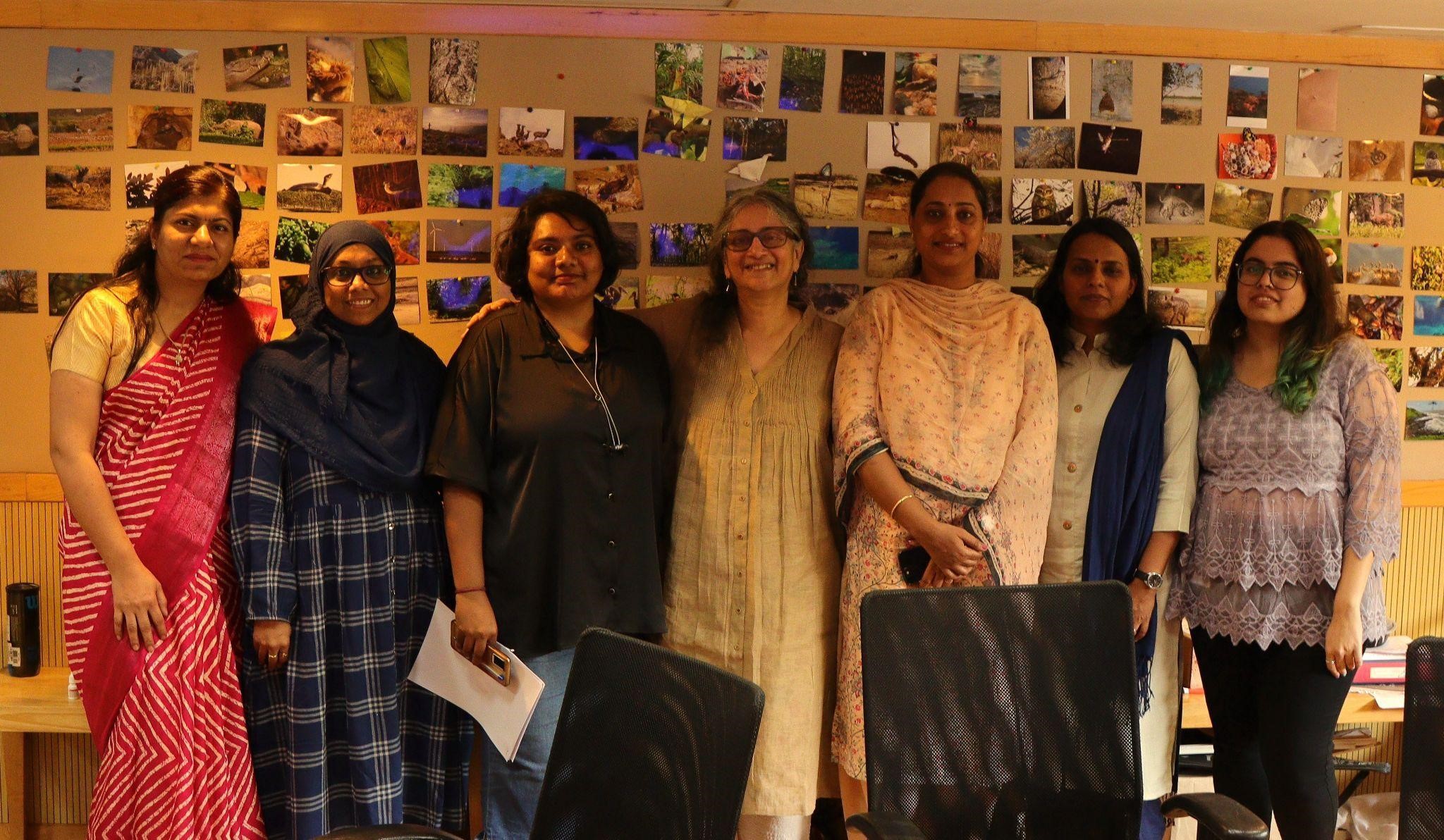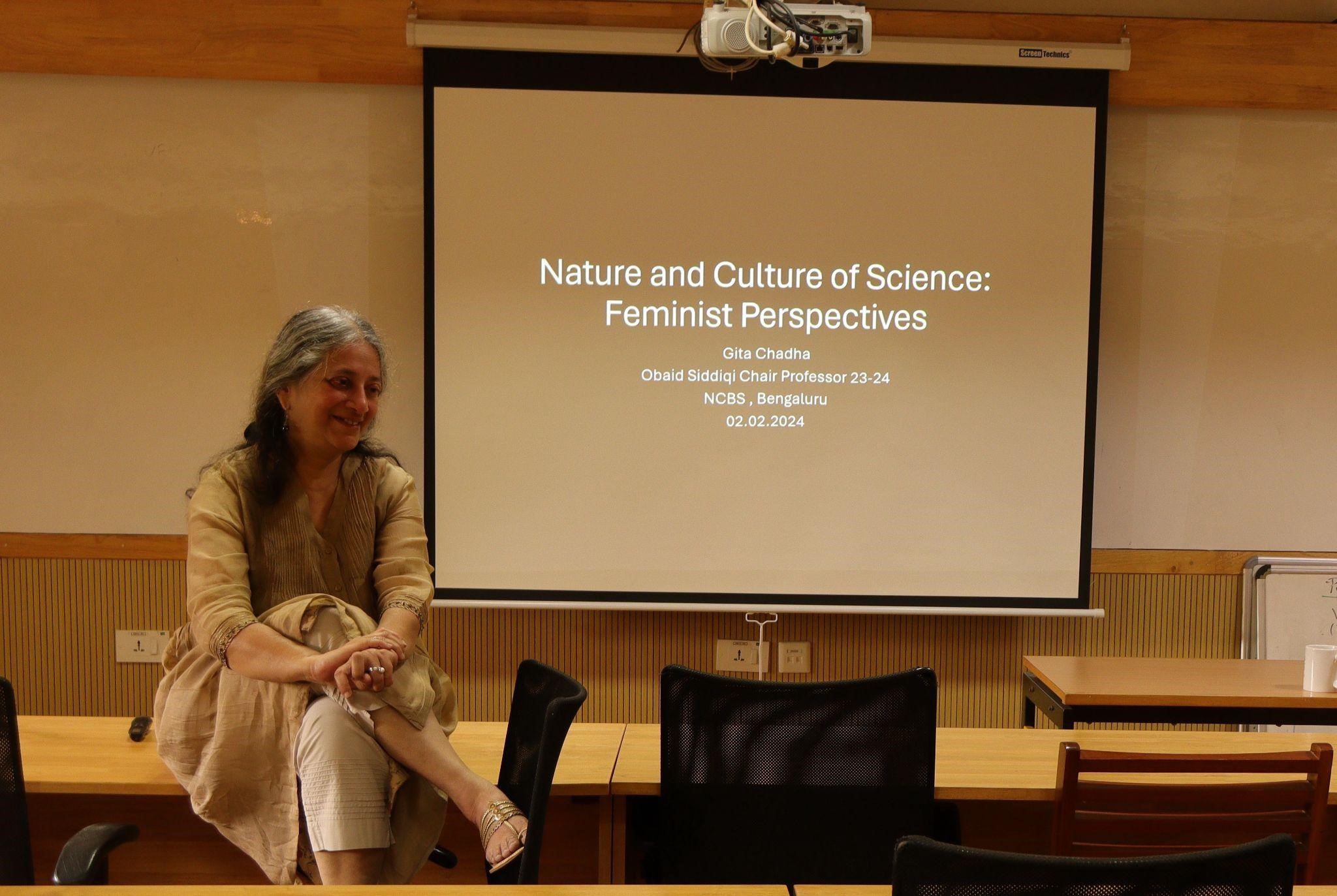“Why so few women in science?” - is the question that united Prof Gita Chadha, Obaid Siddiqi Chair at NCBS, with the workshop attendees who were teachers of engineering, design and education. The half day workshop, titled "Nature and Culture of Science: Feminist Perspectives" on February 2nd, 2024.
Following the introduction of participants, Gita began the workshop with a foundational question: “What is feminism?” The responses ranged from the question of equality, strength, empowerment, equity, the right to choose and many more. Gita emphasised that feminism is about making men and women equals, using ideas of justice.
Gita did not hesitate to address how and why feminism is seen as a bad word in our cultures. She unpacked some of the myths around feminists as troublemakers and as man-haters. Gita highlighted a news story from 2022, in which an NGO from Karnataka performed ‘pishachini mukti puja’ (a superstitious ritual) to eradicate feminism in India. She also pointed out other examples where women questioning detrimental patriarchal norms were labelled as “witches.” Silencing feminism thus, Gita argued is an attempt to protect the patriarchal status quo. Gita also delved into the question of how feminists themselves make stereotypes of a good and bad feminist, thus pushing away a large section of women. To embrace the concept of feminism, one must acknowledge and address both inner and outer threats, Gita said. She then highlighted three feminist principles of research, standpoint epistemology, intersectional analysis and reflexivity.

Pic 1: Prof. Gita Chadha with the participants of the workshop
In the next part, the workshop addressed science from the feminist perspective. Throughout the history of science, numerous individuals have been pushed into the shadows for various reasons. Among them, Gita suggested, some found themselves marginalized not due to their lack of intellect or ideologies, but simply because they happened to possess a uterus! The tales of disrespect span from Hypatia to Rosalind Franklin, and countless others. Gita highlighted that while science is a good tool to fight the barriers of superstition, ignorance, and gender inequality, unfortunately in practice, even in the field of science, women are restricted from pursuing their dreams in the field. Gita connected these questions of underrepresentation of women in science with questions of how modern science represents nature itself, as a feminised entity, to be controlled and harnessed as a ‘resource’ for ‘mankind’. She further explained how the method of science, premised on the separation between the observer and the observed, can deeply restrict our understanding of the world.
In the second session of the workshop, the participants read the following excerpts and reported back to the group:
- The Egg and the Sperm – Emily Martin
- The Biological Connection – Anne Fausto-Sterling
- Women’s Brain – Stephen Jay Gould
- The Ethics of Genetic Research on Sexual Orientation – Udo Schuklenk, Edward Stein, Jacinta Kerin and William Byne.
The discussion that followed was lively, engaged, and fruitful. It highlighted how feminist perspectives in science critique sexist language in science and also demonstrate gender bias in research design.

Pic 2: Prof. LS Shashidhara (Centre Director, NCBS) talking with the participants of the workshop.










0 Comments